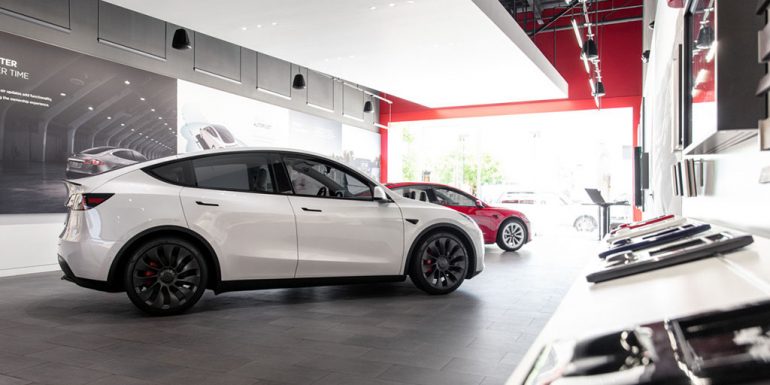
In the rapidly evolving landscape of the automotive industry, electric vehicles (EVs) are marking significant milestones, with a projected 14 million units set to be sold globally in 2023—a remarkable 36 percent surge from the previous year. This surge is not confined to the international market, as the United States is experiencing its own surge in EV demand, with sales expected to escalate by 50 percent to nearly 2 million units in 2023.
Contrary to some concerns about a potential slowdown in EV adoption, current trends suggest a more nuanced scenario. The United States, a focal point for EV discussions, is poised to witness consumers acquiring approximately 1.9 million electric vehicles in 2023, constituting roughly nine percent of the new car market. While this may fall short of certain manufacturers’ expectations, it undeniably reflects robust growth in the sector.
A noteworthy observation is the transformation in the global market share of exclusive EV manufacturers like Tesla, BYD, and Li Auto. From a mere 1% in 2020, these companies are projected to secure 7% of the global vehicle market this year. This shift underscores the increasing competitiveness of electric vehicles and the challenges faced by traditional automakers whose offerings may lag in terms of price, range, or features.
Interestingly, emerging economies such as India, Thailand, and Indonesia are becoming hotspots for EV adoption. Low-cost models are driving demand in these regions, with EVs already constituting 9% of cars sold in Thailand—a rate comparable to that in the United States. This challenges the notion that EVs are exclusively a phenomenon in affluent countries and suggests a promising growth trajectory, especially with the introduction of more affordable models in the $10,000 range.
Legislation, such as the Inflation Reduction Act, has played a role in stimulating investments in the EV and battery manufacturing sector, amounting to approximately $100 billion in newly announced commitments. Despite these positive developments, the journey for EVs is not without obstacles. Some automakers have adjusted their near-term EV targets due to lower-than-expected demand, exemplified by Ford and General Motors.
While 18 carmakers, representing 54% of the global passenger-vehicle market, have pledged net-zero commitments by 2050 or earlier, questions linger about the scope of these targets—whether they encompass the vehicles sold or merely the companies’ operations. Additionally, the absence of new announcements regarding net-zero or combustion-vehicle phase-out commitments in 2023 suggests that challenges persist in fully realizing a sustainable EV future.
Sources: BloombergNEF, Cox Automotive

Mike Floyd is a finance executive by trade and a car enthusiast at heart. As a CFO with a keen eye for detail and strategy, Mike brings his analytical mindset to the automotive world, uncovering fresh insights and unique perspectives that go beyond the surface. His passion for cars—especially his favorite, the Porsche 911, fuels his contributions to Automotive Addicts, where he blends a love for performance and design with his professional precision. Whether he’s breaking down industry trends or spotlighting emerging innovations, Mike helps keep the site both sharp and forward-thinking.